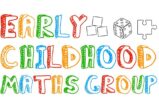Checklist
The ECMG Early years mathematics pedagogy statement Exploration, apprenticeship and making sense suggests that adults provide opportunities for:
- exploration with shape, space, measures & numbers, eg construction
- opportunities to engage imaginatively with mathematical ideas
- number rhymes, books and stories – linking symbols and fingers
- games – tracks, targets, hiding and counting
- outdoor learning- ‘do it huge & outdoors’
- routines – snacktime, tidying up
- familiarity & investigation with mathematical tools eg calculators, timers, scales
All of these have implications for creating a maths friendly environment.
Routines
Adult-led routines provide opportunities for repeated experiences which develop mathematical ideas in meaningful ways. Self-registration can involve comparing the numbers of children present and absent each day. Snack time can involve cutting and counting pieces of fruit and sharing fairly. Tidy-up time can promote child-friendly maths discussions, especially if storage is clearly labelled, with numbers. Here are more ideas, about using tidy-up time and a snack time video.

Making maths visible for the team

Maeve Birdsall and her team used this maths display board to support their professional development, building on recent staff training. It shows annotated examples of children’s responses to provision including mathematical mark making.
“For some time, we had been using display space to support practitioners’ professional development, while at the same time celebrating the children’s achievements. Different areas of learning in turn became the focus for display and dialogue within the staff team. By having reminders/definitions on the wall, we were able to maintain the level of subject knowledge gained during staff training. We found that visible prompts also supported visitors/students on placement and generally increased confidence amongst our staff”.
It is important that adults enjoy maths activities too, so they share their enthusiasm with children. Here are some favourite resources from members of the ECMG:

